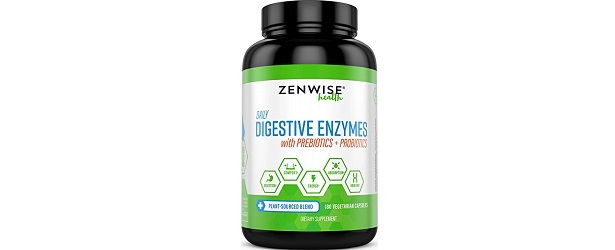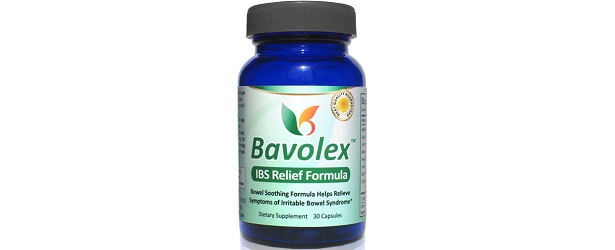
Foods That Can Trigger IBS
IBS or irritable bowel syndrome is categorized by abdominal pain or discomfort and bowel irregularity. IBS is estimated to affect between 25 and 45 million Americans with two third of IBS sufferers being women. Although the number of those affected is high, few will visit their doctor to discuss treatment options. Treatments can range from medication to change in diet, although the majority of IBS patients choose to treat their symptoms through diet. Different foods can trigger different symptoms so there are no set rules about what foods to avoid with IBS but by avoiding commonly food triggers you may see a bit of relief from your usual symptoms. This article is going to discuss different food triggers that will often worsen symptoms of IBS. Continue reading to learn more.
Insoluble Fiber
Insoluble fiber is a type of fiber that does not absorb or dissolve in water. It passes through the digestive system close to its original form. Soluble fiber is soft and sticky and turns into a gel-like substance inside the digestive system. It can help soften stool so that it passes through the gastrointestinal tract easily. Insoluble is can be problematic for those with IBS because it can cause or even worsen diarrhea. Foods with insoluble fiber include oatmeal, barley, root vegetables, fruits, and legumes.
Dairy
Dairy can be problematic because dairy products generally have a higher fat content which can cause diarrhea. The other problem with dairy is that often times, most people suffering from IBS are lactose intolerant as well. Dairy is oftentimes the first thing that doctors will recommend cutting out of a diet to improve symptoms of IBS.
Caffeine
Caffeine can be problematic because it can produce a laxative effect on your bowels. Unfortunately for coffee lovers, decaf appears to have a similar laxative effect so it is not recommended to consume any type of coffee if you are suffering from IBS. Furthermore, coffee elevates stress hormones like cortisol, epinephrine, and norepinephrine. These hormones can increase your heart rate and blood pressure. Blood will be redirected from the digestive system which can lead to indigestion and amplified symptoms of IBS. Another issue with coffee is that it is highly acidic and can cause hypersecretion of gastric acids which can stimulate symptoms of IBS.
Legumes
Although beans and legumes are an excellent source of fiber, they contain indigestible carbohydrates which can irritate IBS. Another issue is that they can increase gas, bloating and cramps. They can also be harder for people experiencing IBS to digest.
Gluten
Foods containing gluten like rye, wheat, and barley are a common allergy that is defined as celiac disease. Celiac disease is an autoimmune disease when occurs someone with a gluten allergy eats something with gluten in it and it triggers an irregular immune response. This can damage the inside of the small intestine which causes it to decrease its ability to absorb nutrients. People with IBS can have a gluten intolerance without the immune response or changes in the intestinal cells. This means that you can experience the same side effects and GI symptoms of gluten ingestion as one diagnosed with celiac disease.
It is important to keep in mind that every person’s food triggers can be different. Make sure to talk to your doctor or dietician to come up with a plant that can help get your IBS symptoms under control.
TOP 5
IBSTreatments |
|||||
| IBS Clear | BioGanix BioZyme Digestive Enzymes | Nature's Sunshine Food Enzymes | Herbs of Gold IBS Advanced | Kijimea IBS | |
|---|---|---|---|---|---|
| 1 | 2 | 3 | 4 | 5 | |
| Price (1 bottle) Price (6 bottles) best value |
$49.95 $139.70 |
$45.95 $183.80 |
$39.95 $239.70 |
$39.95 $239.70 |
$42.94 $257.64 |
| Overall Rating | 98.7% | 82.00% | 71% | 64% | 61% |
| Effectiveness |





|





|





|





|





|
| Speed of Results | Extremely Fast | Fast | Good | Average | Slow |
| Quality of Ingredients | Premium | Good | Good | Average | Average |
| Customer Satisfaction Evaluation | 99.50% | 81% | 79% | 72% | 68.2% |
| Safety Evaluation | Safe for Use | Safe for Use | Safe for Use | Safe for Use | Safe for Use |
| Customer Service Rating |





|





|





|





|





|
| Reorder Rate | Highest | Good | Average | Good | Average |
| Return Policy | Risk Free | Unused | Risk Free | Unused & Unopened | No |
| Success Rate | 99.60% | 83% | 77% | 71.20% | 69.2% |

 Subscribe Now
Subscribe Now











